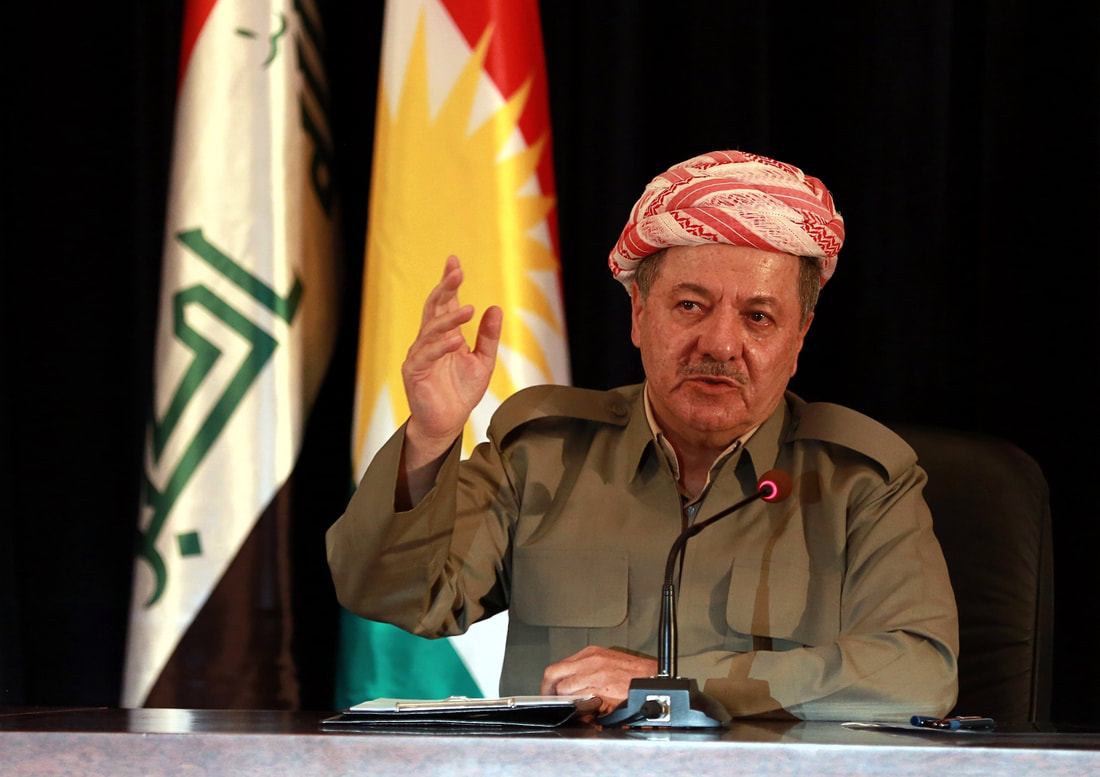 AP Images AP Images When the Kurdish referendum took place last month, The Knife wrote about how sensational, imprecise or subjective terms (or, spin) made it harder to understand what happened and what the effects of the vote could be. After the Kurdish president stepped down on Sunday, we looked at the same outlets as we did last month and found a similar problem with spin in their coverage Here is an illustration of how spin introduces implications and ambiguity that can influence how the facts are understood.
The examples below are taken from the first three sentences of each article: Masoud Barzani…had promised that the vote on independence from Baghdad would be a vital step in a century-long fight for self-rule. Instead, it unraveled many of the gains the Kurds had made in carving out a semiautonomous region in northern Iraq after decades of war. ( The Washington Post) Iraqi Kurdistan President Masoud Barzani is set to step down, following an independence referendum that backfired and damaged Kurdish hopes for autonomy. (The Daily Caller) Iraqi Kurdish leader Masoud Barzani will step down as president of Iraq’s semi-autonomous Kurdish region as the political backlash to September’s Kurdish independence referendum continues. ( CNN) The decision comes just over a month after a controversial secession referendum spearheaded by Barzani, which led to days of fighting between Iraqi government and Kurdish Peshmerga forces. ( Al Jazeera)If you already know what happened, then you might understand how the referendum may have “backfired” or what specific events “backlash” could be referring to. If you don’t know the events leading up to Barzani stepping down, these terms aren’t that informative. In fact, they introduce ambiguity about what happened. They also import misleading implications that we’ll examine shortly. Let us fill you in with an abridged version of the events preceding and following the referendum. Notice how the facts bring precision and clarity while terms like “backfired” and “backlash” don’t:
Ambiguity isn’t the only problem. Saying the referendum “backfired” or “unraveled” Kurdish independence also implies the vote caused the events that followed it. This isn’t necessarily incorrect, but blaming the referendum may close down further questioning. There may be additional factors that led to the sequence of events that followed the vote. Comparing the timeline above to the spin also highlights the boundary between fact and opinion. It’s fact that the Supreme Court ruled to suspend the referendum and that Iraqi troops captured parts of Kirkuk following the vote – this is verifiable and has consistent meaning from person to person. Saying there was “backlash” or the vote was “controversial” is opinion – it’s subjective and therefore difficult to verify, and different people may have different impressions of what happened. Fact-based news cuts through the ambiguity, implication and imprecision, saving readers the effort of searching out missing information and removing spin to uncover undistorted facts. This is what The Knife does for you in our Raw Data and Context sections. Written by Leah Mottishaw and Shane Mottishaw Edited by Shane Mottishaw and Jens Erik Gould Visit the original story on Knife Media’s website Follow us on Twitter @theknifemedia Follow us on LinkedIn Comments are closed.
|
Jens Erik GouldJens is a political, business and entertainment writer and editor who has reported from a dozen countries for media outlets including The New York Times, National Public Radio and Bloomberg News Archives
February 2018
Categories
All
|
 RSS Feed
RSS Feed